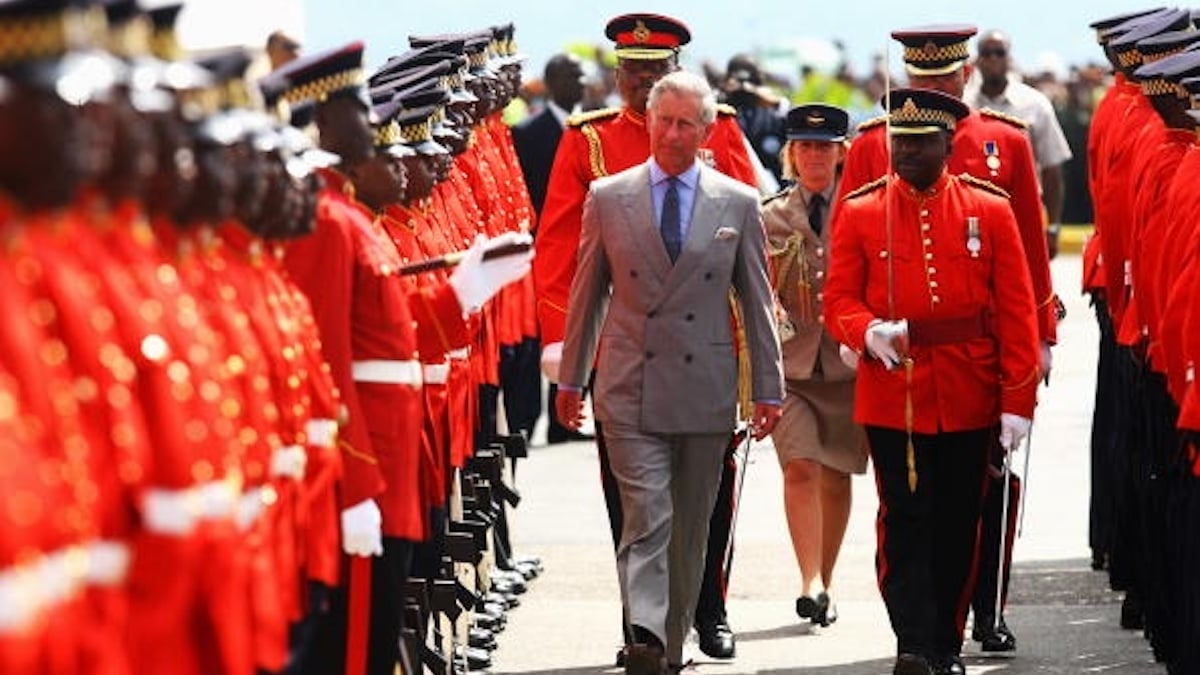As of right now, there are 14 countries or commonwealths where King Charles III is the head of state. Those include Australia, New Zealand, The Bahamas, and notably, Jamaica. The latter recently proposed a bill to end his formal reign; yep, Jamaica wants to lose Charles and make it on its own as a republic. No one tell King Charles, please.
Marlene Malahoo Forte, Jamaica’s Minister of Legal and Constitutional Affairs, started the process with the Constitution (Amendment) Republic Act of 2024. The goal is for the country to be a republic by the upcoming general election in 2025.
The move is not guaranteed, and still needs to work its way through Jamaican parliament, but the wheels are definitely turning.
Forte said the people are ready to move on from Britain and its colonial past. “Every year when we celebrate independence on August 6, the nation is invited to reflect on its achievements since independence and what remains to be done, and every year the question is asked when are we going to abolish the monarchy and have a Jamaican head of state,” Forte said.
So what does this mean for England and King Charles III? Pretty much nothing. The title is mostly symbolic, and Charles’ duties are mainly ceremonial. He doesn’t have any political control over anything at all. His job is basically to dress up and appear places.
Jamaica was under the control of the British Empire for around 300 years, until 1962 when it gained independence. For its part, at its height in the 1910s and ’20s, the British Empire was the largest and most powerful in the world. It covered almost one fourth of the globe, and contained more than 458 million subjects. That empire could not, however, survive the ravages of World War II, and rapid decolonization began in 1945.
As with everything, Jamaica’s move away from the monarchy will no doubt be political. In order for the bill to proceed, it would need to get by a joint committee review, then a parliament vote, then a national referendum. As there’s an election coming up, the issue might become too difficult to see through.
The country also had to figure out whether the Caribbean Court of Justice will become the highest court in the country after it moves away from the Privy Council of the U.K.
The Caribbean Court of Justice is the final court of appeals not only in Jamaica, but nine other Commonwealth jurisdictions as well, including Trinidad & Tobago, Bermuda, The British Virgin Islands, and The Bahamas. It’s mainly made up of judges from the United Kingdom Supreme Court, and it usually holds hearings in London.
The movement in Jamaica to break away from the monarchy began in earnest back in 2016, when Jamaican Prime Minister Andrew Holness was elected. He ran on a promise that he would replace the late Queen Elizabeth II with a “a non-executive president as head of state.”
When Prince William and Kate Middleton visited the Caribbean in March, Holness used the opportunity to present the issue directly to the world.
“There are issues here, which as you know, are unresolved, but your presence gives us an opportunity for those issues to be placed in context, to be out front and center and to be addressed as best we can,” he said.
